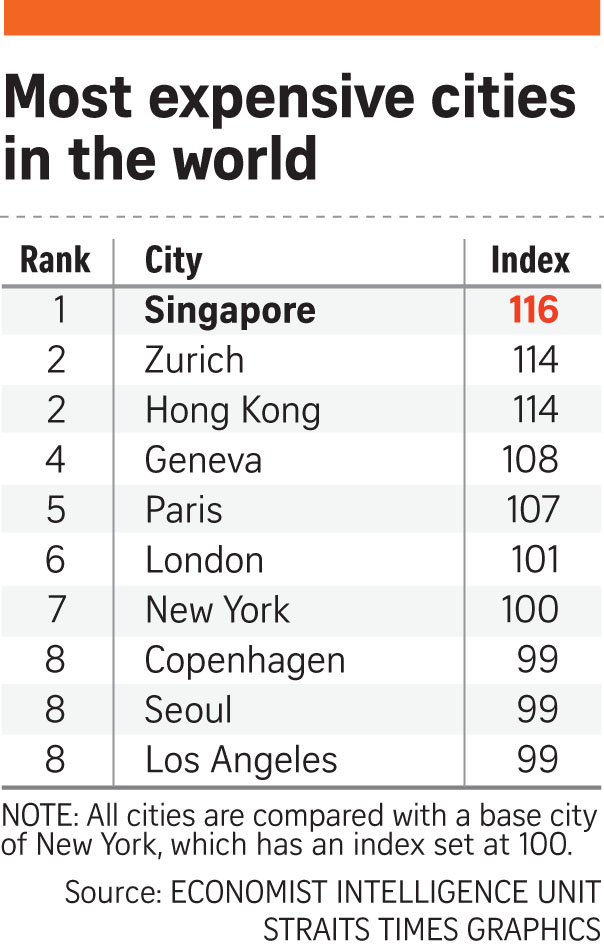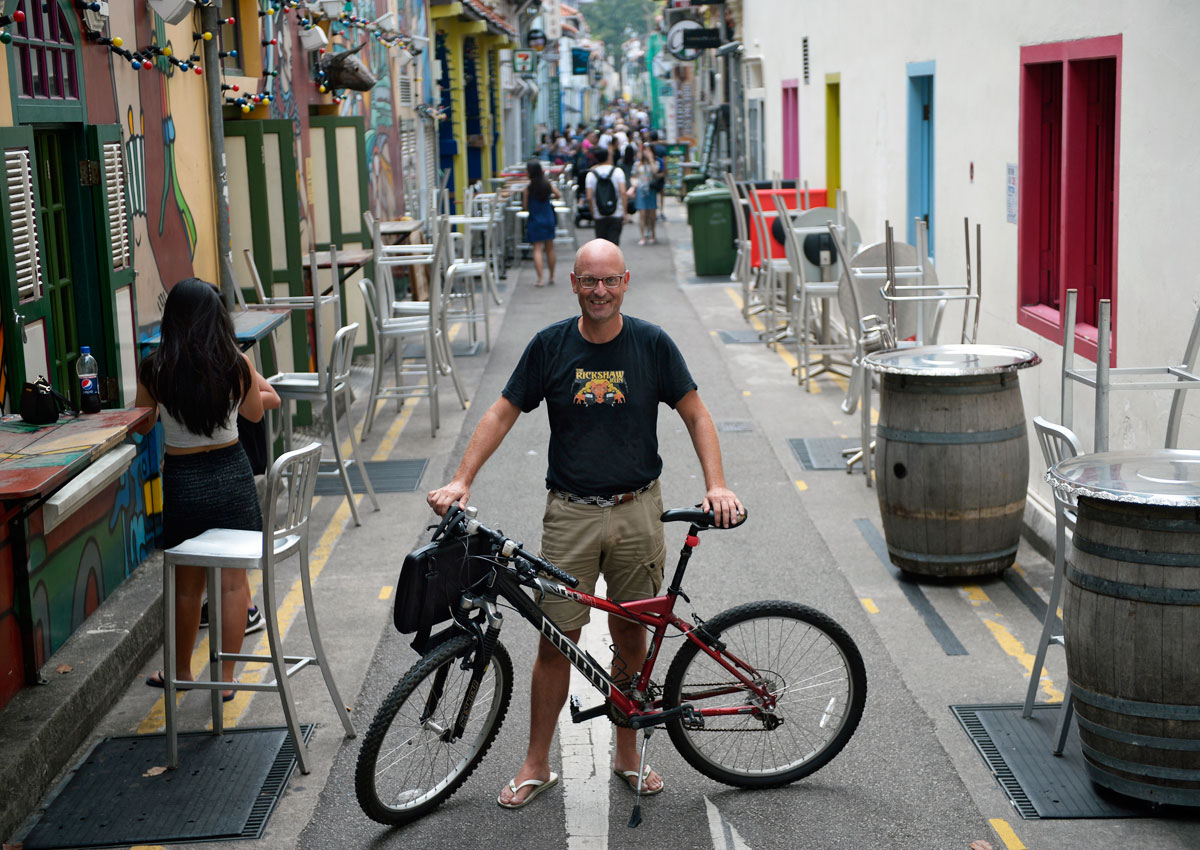The cost of high-end housing, private schools and cars may be sky high in Singapore, but for many expatriates, going “local” makes living here quite affordable.
And that means eating at hawker centres, buying groceries from wet markets and eschewing private transport for trains and buses.
This is what many of them told The Sunday Times when asked about Singapore’s thrice-awarded title of being the most expensive city in the world for expatriates.
The Economist Intelligence Unit (EIU), the research and analysis division of British media firm The Economist Group, produces the worldwide cost of living survey to help firms come up with compensation packages and allowances for expatriates and business travellers.
It takes into account more than 400 individual prices across 160 products and services in calculating its cost of living index.
Singapore has placed top since 2014, and was ranked first again in the latest report earlier this month, ahead of Zurich and Hong Kong, which shared second place, with Geneva coming in third.
The Singapore Government responded to this with a detailed post on its gov.sg website to explain why the country was top of the chart.

A key reason was the Singapore dollar’s strong appreciation against the United States dollar in the last decade, and the type of upmarket goods that the survey takes into account, such as filet mignon and international newspapers.
It also reported that the prices quoted by the EIU for many products and services were far more than what Singaporeans typically pay.
Expats whom The Sunday Times spoke to said the cost of living depends on the lifestyle they choose.
Italian Joe Galeotti, a 48-year-old hairstylist, added: “You can either have a meal for less than $10 at the foodcourt or $200 at a restaurant… I choose the former as it makes more sense to me to eat Asian food when I’m in an Asian country.”
Many said they have fallen in love with Singapore’s public transport.
Said Mr Paul Burton, a 41-year-old director at IHS, a firm that provides defence analytics: “We now spend less in a month on train tickets in Singapore than in a week back in London.”
For psychology lecturer Aoife McLouglin, 30, getting around by taxis is also relatively affordable. She said: “It is easily a third of the price compared to my country, Ireland.”
Dutch expatriate Emile Leus, 43, simply takes advantage of the weather here. The owner of TVworkshop Asia, an events company, said: “I cycle everywhere I go and it’s great.”
The EIU has named Singapore the most expensive place in the world to get a car because of its certificate of entitlement system and, for some expats used to driving, this takes some getting used to.
Said Dutchman Charlie van Eeden: “I used to drive a BMW but it’s just too expensive here. Now, I’m paying $1,400 for a rental Hyundai. For the same price, I could probably rent a BMW 5 Series in Amsterdam.”
If not for his two young children, aged three and five, the 39-year-old head of Asia at a creative agency added that he would rely on public transport or cabs to get around instead.
Rental rates here also require adjusting expectations.
Instead of paying $6,000 a month to rent a new condominium unit in Novena, Mr Galeotti chose to live in a nearby 10-year-old condominium instead, paying almost half the price in rent. He said: “I don’t mind that it is an old condominium. It still has great facilities.”
Experts caution against reading too much into the EIU survey.
Dr Yvonne McNulty, who specialises in expatriation and global mobility research, said it is aimed at a niche group of highly paid foreigners on “expatriate” contracts, which tend to offer housing and car allowances, and that these expats hope to replicate how they live back home here.
The associate lecturer at RMIT University Singapore and founder of Expat Research added: “The survey does not consider ‘localised’ expats, who are here on local terms, even though we’re seeing more of them now.”
Private school fees remain a bugbear. Frenchman Eric Balanca, 50, is here on a local contract with his wife, 18-year-old son and toddler.
His son studies at the French School of Singapore, costing him about $25,000 annually. “It’s definitely a high price because in France, education is free.
“There are local schools, but it’s difficult to get in and I would prefer my son to attend the French school,” he said.
Expatriates also find ways to get around the high costs of certain goods in Singapore.
“Baby items are much cheaper in the UK because they are discounted, so we used to ship prams, baby chairs and other baby items from there,” said Mr David Brotherton, a 39-year-old lawyer from Britain.
Despite earning the title of costliest city for the third year running, all the expatriates whom The Sunday Times spoke to said that they would definitely recommend Singapore as a place to live and work.
Said Mr Balanca: “The people are great and I like the vibrant economic environment… My advice is to take care of your income by budgeting.”
nghuiwen@sph.com.sg
domteojy@sph.com.sg

This article was first published on March 27, 2016.
Get a copy of The Straits Times or go to straitstimes.com for more stories.






